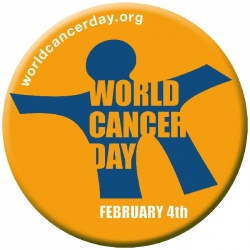COCIR Raises Awareness of Industry Achievements On World Cancer Day 2014
Today is World Cancer Day 2014 and COCIR wants to take this opportunity to raise awareness of what our sector (medical imaging and health ICT) is contributing to the fight against cancer, by providing solutions for the prevention, early diagnosis and treatment of this devastating, ever-rising chronic disease.

Considering that the campaign focus this year is “Debunk the myths”, we strongly support the need to improve cancer outcomes and increase access to effective, qualitative and affordable cancer care.
The improved treatment options and the increase in survival rates are largely due to the advances in diagnosing certain cancers at early stage. Not only do product and services delivered by COCIR industries support the early diagnosis of cancer, but these technologies play a paramount role in therapy control by enabling a range of lessinvasive, highly targeted therapies and by visualizing the patient’s response to it.
Nicole Denjoy, COCIR Secretary General, says: “Cancer is on the rise, with 3 million new cases diagnosed each year in the European Union. However, nearly 40% of all cancer cases could be prevented with healthier lifestyles and better treated by more systematic deployment of early detection systems. Innovation in medical technology is bringing new and efficient responses to citizens and cancer patients.” She added, “The promise of health ICT is that it supports the cancer cycle, not only in the traditional administrative and operational aspects, but also in the clinical workflow and the medical decisions that have to be taken every day, in a targeted way”.
Over time, COCIR members have introduced new products and solutions and acquired a great competence across the complete cancer care cycle, from prevention and early diagnosis, via treatment to rehabilitation and chronic or palliative care. Having evolved far beyond the one-size-fits-all approach of the past, today’s modern technologies offer highly personalised, non-invasive care tailored to each patient.
04.02.2014





